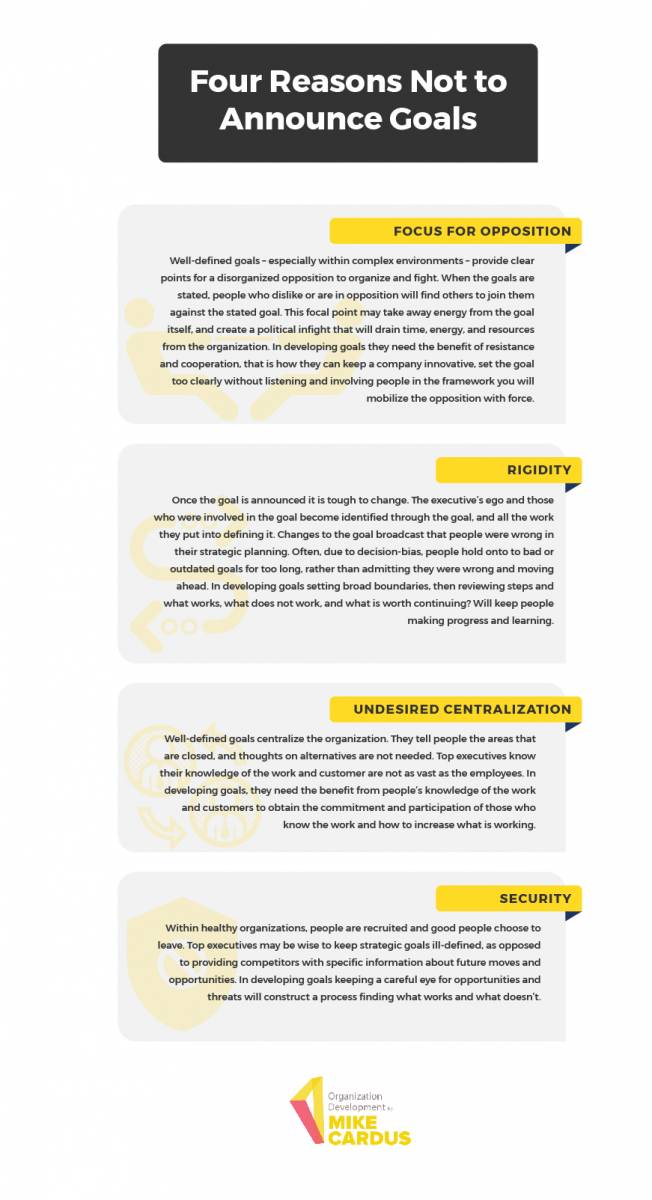
In the middle of a meeting with an executive leadership team, the COO yells, “we need to state our company’s goals clearly; only then can the staff have the motivation to complete their work.” This is true and not true at the same time. Much of the leadership development and planning literature states goal setting as if they were commandments: (1)
- Define specific goals for your organization
- State these goals clearly, explicitly, with quality plus quantity
- Assign the goals to individuals within the company
- Establish quantitative performance appraisal measures to control the people toward the goal
This makes sense, and why do so many companies not follow the list above?
Companies are successful in my experience, the people are smart, and innovation happens when executives do not create a decree of direction. Instead, they set boundaries and listen to what is working to increase and not decrease.
Four reasons to not announce your well-defined goals
- Undesired centralization – well-defined goals centralize the organization. They tell people the closed areas and thoughts on alternatives are not needed. Top executives know their work knowledge and customers are not as vast as the employees. In developing goals, they need the benefit from people’s knowledge and customers to obtain the commitment and participation of those who know the work to increase what is working.
- Focus for opposition – well-defined goals – especially within complex environments – provide clear points for a disorganized opposition to organize and fight. When the goals are stated, people who dislike or are in opposition will find others to join them against the stated goal. This focal point may take away energy from the goal itself and create a political infight that will drain the organization’s time, energy, and resources.
- Rigidity – Once the goal is announced, it is tough to change. The executive’s ego and those involved in the goal become identified through the goal and the work they put into defining it. Changes to the goal broadcast that people were wrong in their strategic planning. People often hold onto bad or outdated goals for too long due to decision bias rather than admitting they were wrong and moving ahead. In developing goals setting broad boundaries, reviewing steps, and what works, what does not work, and what is worth continuing? It will keep people making progress and learning.
- Security – Within healthy organizations, people are recruited, and good people choose to leave. Top executives may be wise to keep strategic goals ill-defined instead of providing competitors with specific information about future moves and opportunities. In developing, goals keeping a careful eye for opportunities and threats will construct a process of finding what works and what doesn’t.
These are why top managers may not follow the recommendations of business books about stating well-defined goals in advance. The goals executives do announce often:
- reflect or support developing consensus around ideas,
- are broad enough to have flexibility and opportunism,
- are distant enough in time that several possible options could ensure the goal is achieved.
Referenced: Quinn, J. B. (1980). Strategies for change logical incrementalism. Homewood, IL: R. D. Irwin.

